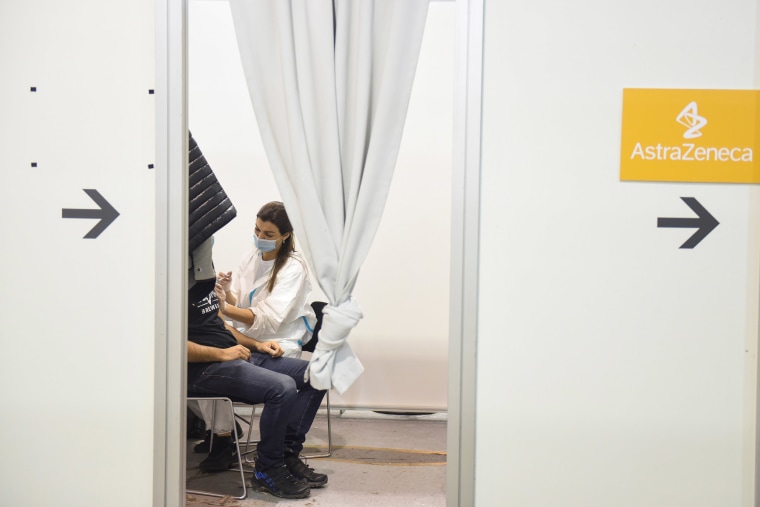The benefits of AstraZeneca’s Covid-19 vaccine continue to outweigh the risks after several countries halted its use due to concerns about blood clots, Europe’s medicines watchdog said on Tuesday.
EMA Executive Director Emer Cooke said there was no indication that the blood clot incidents, which he called “very rare,” had been caused by the vaccine, but that experts were assessing that possibility.
Trust in the safety of the vaccines was paramount and the agency was carrying out a case-by-case evaluation, she said.
“The benefits continue to outweigh the risks, but this is a serious concern and it does need serious and detailed scientific evaluation. This is what we are involved in at the moment,” Cooke told a news conference.
Full coverage of the coronavirus outbreak
The results of its findings would be discussed during an EMA review on Thursday after which the results would be made public, Cooke said.
Sweden and Latvia on Tuesday suspended use of the vaccine, bringing to more than a dozen the number of European countries to act since reports first emerged of thromboembolisms affecting people after they got the AstraZeneca shot.
Germany, France and Italy paused vaccinations with AstraZeneca vaccine on Monday, throwing Europe's already struggling vaccination campaign into disarray.
Denmark and Norway stopped giving the shot last week after reporting isolated cases of bleeding, blood clots and a low platelet count. Iceland and Bulgaria followed suit and Ireland and the Netherlands announced suspensions on Sunday.
The World Health Organization approved AstraZeneca and Oxford University's vaccine for emergency use last month.
WHO said Monday that "there is no evidence that the incidents are caused by the vaccine" and advised that vaccination campaigns should continue while the clotting concerns are investigated.
In addition to the EMA and the WHO, AstraZeneca has said there is no evidence the vaccine carries an increased risk of blood clots. There have been 37 reports of blood clots among the more than 17 million people who have received the vaccine across the European Union and Britain, the company said.
Experts say without a higher burden of proof, the suspensions could ultimately drive future outbreaks — particularly because they are coming at a precarious time for Europe in the pandemic when cases are surging again.
